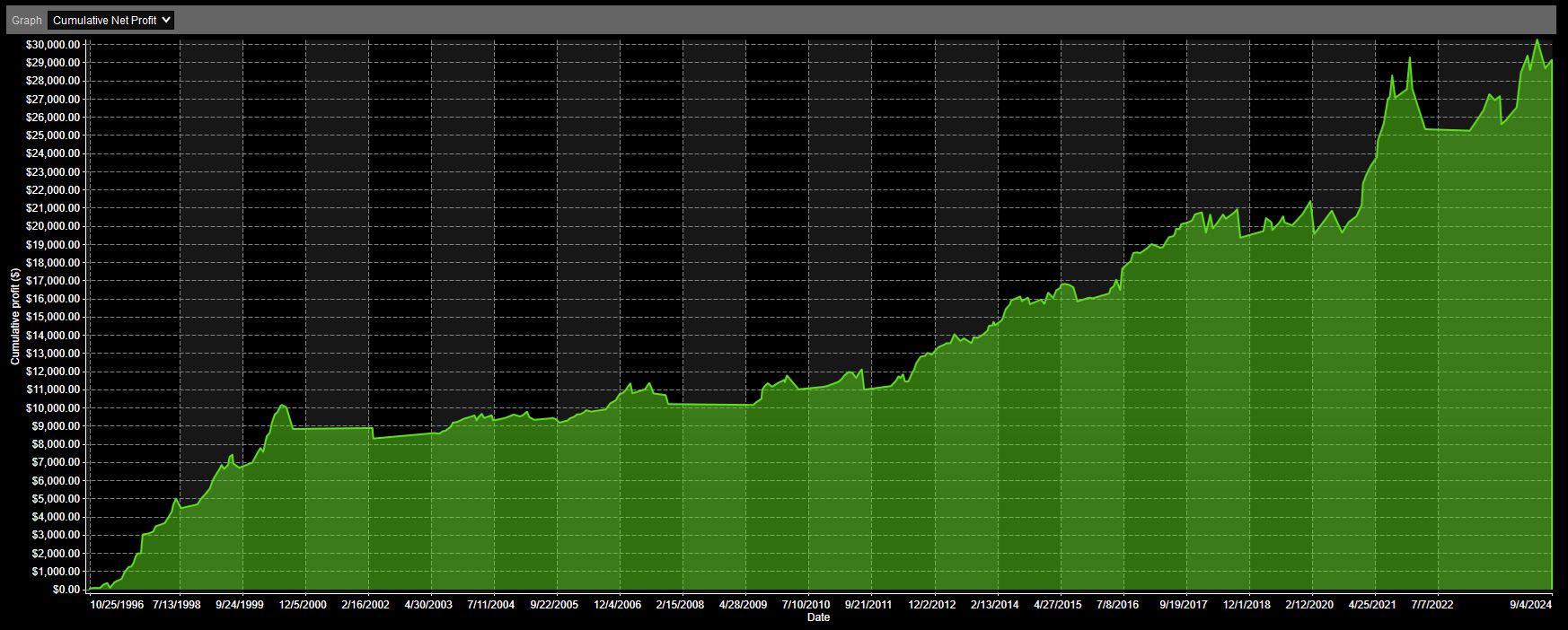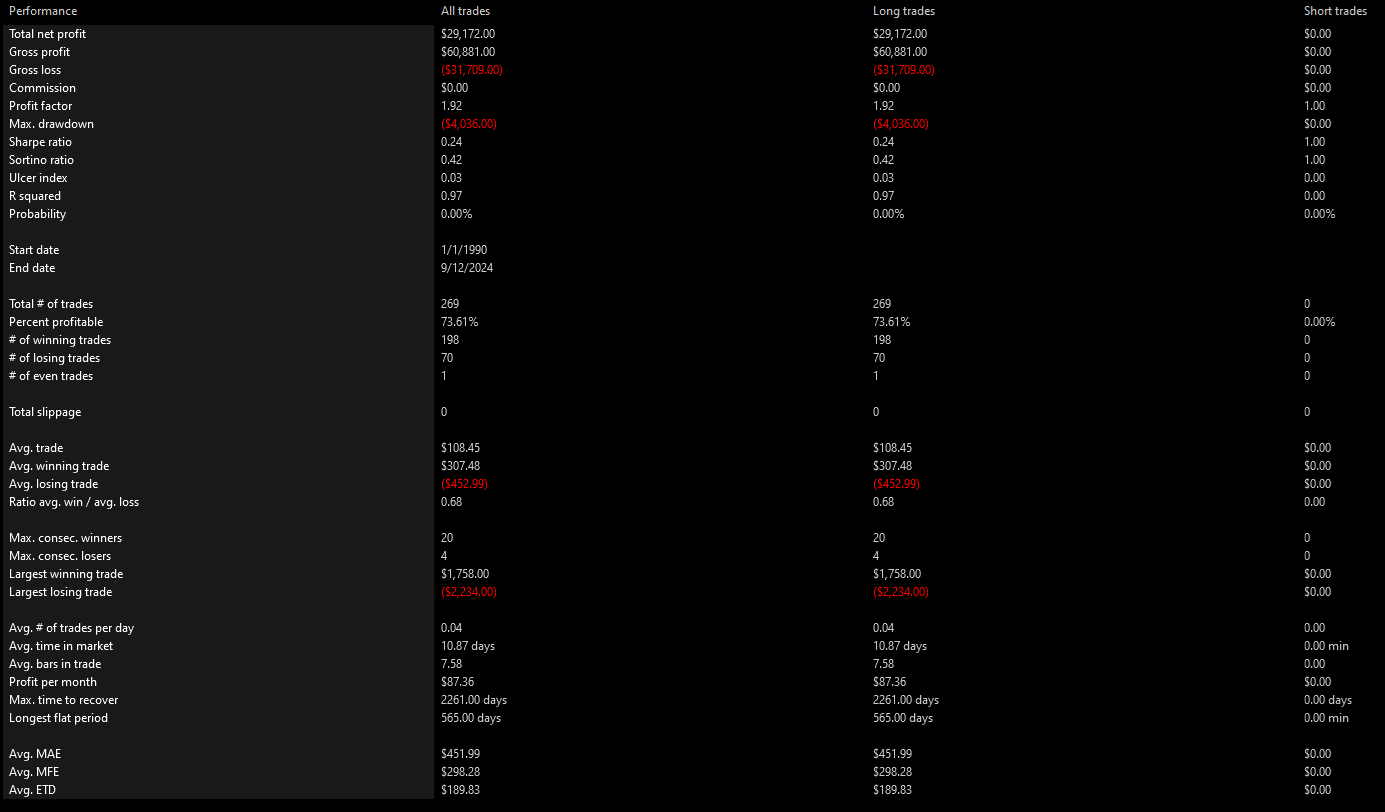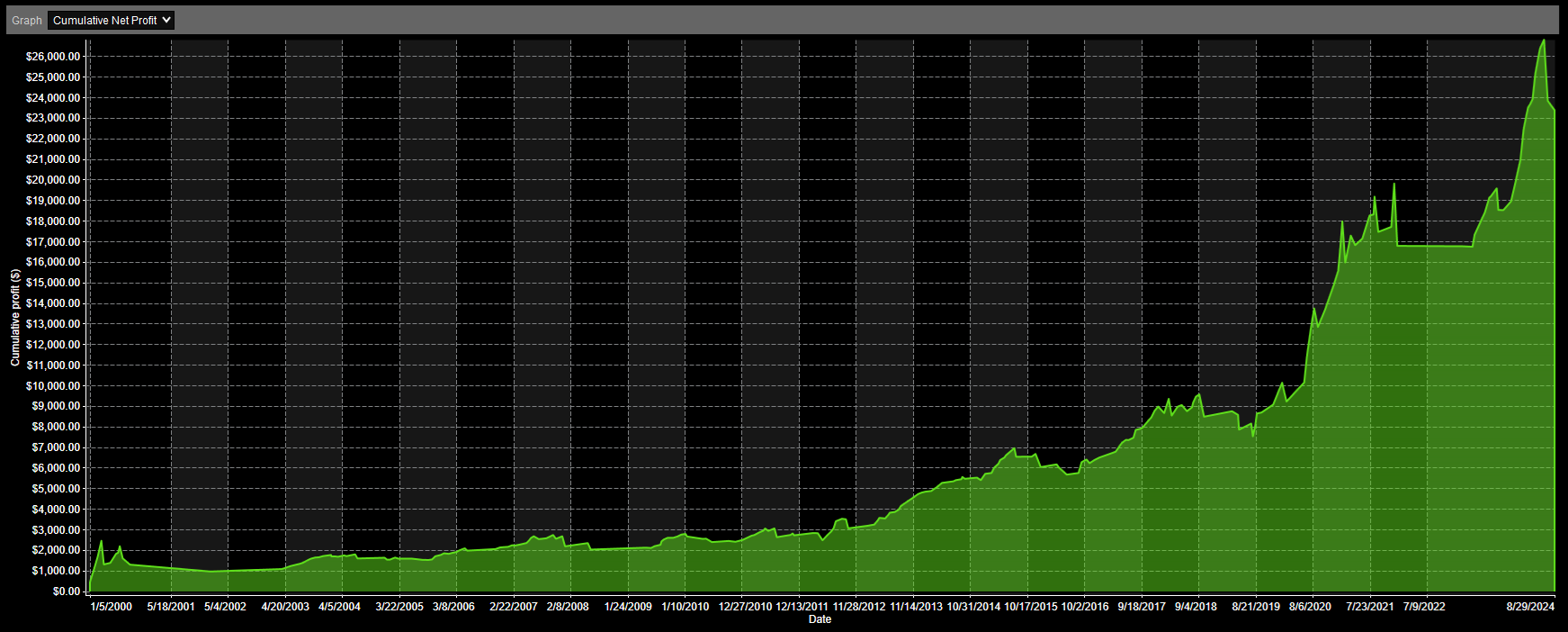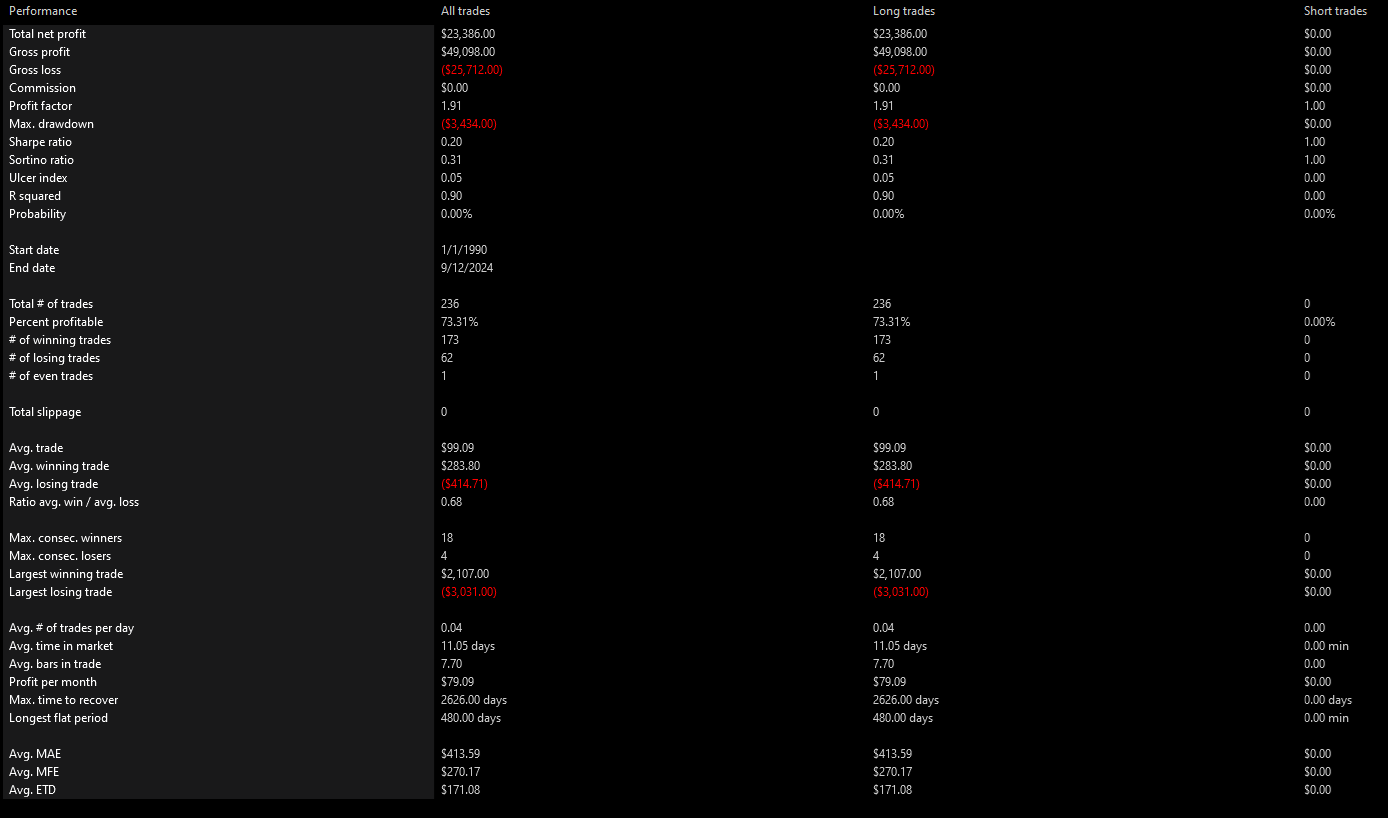33 lines
1.1 KiB
Markdown
33 lines
1.1 KiB
Markdown
# Double 7's
|
|
|
|
This strategy was taken from chapter 10 of [*Short Term Trading Strategies That Work*](https://moshferatu.dev/moshferatu/short-term-trading-strategies-that-work) (2008) by Larry Connors.
|
|
|
|
## Rules
|
|
|
|
1. The asset (e.g., SPY) must be above its 200-day moving average.
|
|
2. If the close is at a 7-day low, enter a long position.
|
|
3. Exit the position when the close is at a 7-day high.
|
|
|
|
While the strategy rules specifically mention a 7-day period, periods of 5, 6, 8, 9, 10, etc. should work as well.
|
|
|
|
## Parameters
|
|
|
|
**Period**: The number of days to consider when determining the low and high. (Default: 7)
|
|
|
|
**Long-Term Trend Period**: The period to use when in the long-term trend calculation as measured by a simple moving average. (Default: 200)
|
|
|
|
## Backtest Results
|
|
|
|
### SPY
|
|
|
|

|
|
|
|

|
|
|
|
### QQQ
|
|
|
|

|
|
|
|

|
|
|
|
--- |